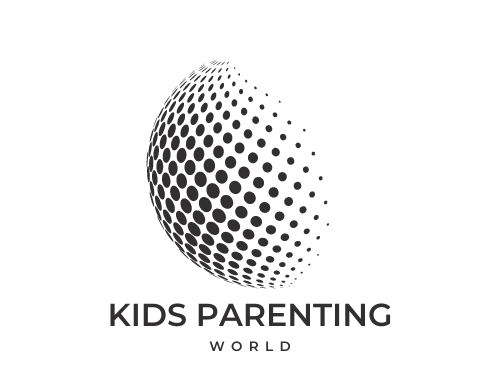In today’s fast-paced world, raising confident and responsible children can seem like a daunting task. However, using the method of parenting with love and logic can transform your relationship with your kids, fostering an environment of respect and understanding. Imagine guiding your child’s growth without the need for yelling or screaming. Instead, you can help them develop a strong personality through compassionate communication and clear boundaries. Let’s explore how this empowering approach can make parenting both effective and joyful.
Parenting with Love and Logic: A Pathway to Raising Responsible and Loving Kids
Parenting is one of life’s most profound responsibilities. It’s a journey filled with challenges, joys, and an endless series of decisions that shape the future of the next generation. Among the myriad parenting styles available, “Parenting with Love and Logic” has gained considerable attention for its balanced approach that combines love with discipline, offering parents a practical method to raise responsible, respectful, and resilient children. This article will explore what parenting with love and logic is, how it can be implemented in daily life, and why it is a powerful tool in fostering a healthy parent-child relationship.
What is Parenting with Love and Logic?
At its core, Parenting with Love and Logic is an approach that emphasizes the importance of nurturing a child’s independence while also providing them with clear, consistent boundaries. The philosophy is grounded in the belief that children learn best when they experience the natural consequences of their actions in a loving and supportive environment. By allowing children to make choices and face the results, parents can help them develop critical thinking skills, responsibility, and self-discipline.
Unlike traditional methods that rely on yelling, punishment, or control, parenting with love and logic encourages parents to guide their children with empathy and respect. This approach not only fosters a deeper connection between parents and children but also helps children develop a strong sense of self-worth and personal accountability.
The Power of Love in Parenting
Love is the foundation of any strong parent-child relationship. In the context of parenting with love and logic, love means providing unconditional support and encouragement, while also allowing children to learn from their mistakes. This approach rejects the notion of overprotecting or micromanaging children, instead encouraging parents to trust in their children’s ability to navigate challenges with the guidance they provide.
When parents express love in a way that is both nurturing and empowering, children feel valued and understood. This deepens their bond with their parents and builds a sense of security that is crucial for healthy emotional development. It also sets the stage for open communication, where children feel comfortable sharing their thoughts, fears, and aspirations without fear of judgment or punishment.
No Screaming, No Yelling: A Calm Approach to Discipline

One of the most significant challenges parents face is getting their children to listen without resorting to yelling or screaming. Unfortunately, many parents find themselves in a cycle of frustration where they feel compelled to raise their voices to be heard. However, this approach can have detrimental effects on a child’s self-esteem and overall development.
Parenting with love and logic offers an alternative by encouraging calm and respectful communication. Instead of yelling, parents are taught to use natural consequences and empathetic statements to guide their children’s behavior. For example, if a child refuses to wear a coat on a cold day, a parent might say, “I’m worried you might get cold, but it’s your choice whether you want to bring your coat.” When the child experiences the discomfort of being cold, they learn the importance of making better decisions in the future.
This method not only eliminates the need for yelling but also teaches children to think critically about their choices. Over time, they learn to anticipate the consequences of their actions and make decisions that align with their best interests.
Helping Kids Develop Strong Personalities
Every parent wants their child to grow into a confident, well-rounded individual. Parenting with love and logic plays a crucial role in helping kids develop strong personalities by encouraging them to take ownership of their actions and decisions. When children are allowed to make choices, even when those choices lead to mistakes, they learn valuable life lessons that contribute to their personal growth.
This approach also helps children build resilience, as they learn to navigate challenges and setbacks without feeling overwhelmed or discouraged. By providing a loving and supportive environment, parents can help their children develop a positive self-image and a strong sense of self-efficacy.
Moreover, when parents refrain from yelling or using punitive measures, children are more likely to internalize positive values and behaviors. They learn that they are responsible for their actions and that they have the power to shape their own lives. This sense of empowerment is essential for developing a strong and resilient personality.
Avoiding the Pitfalls: How Yelling Can Destroy a Child’s Personality
Yelling and harsh discipline can have long-lasting negative effects on a child’s personality. When parents resort to yelling, they may inadvertently send the message that the child is not worthy of calm and respectful communication. This can lead to feelings of shame, insecurity, and low self-esteem, which can hinder a child’s emotional and social development.
In contrast, parenting with love and logic encourages parents to use empathy and understanding when addressing their child’s behavior. This approach not only preserves the child’s dignity but also fosters a positive parent-child relationship built on mutual respect. When children feel respected and valued, they are more likely to develop a strong and confident personality.
Getting Kids to Listen Without Yelling
One of the most common challenges parents face is getting their kids to listen without resorting to yelling. The key to achieving this lies in setting clear expectations and following through with consistent consequences. Parenting with love and logic emphasizes the importance of allowing children to experience the natural outcomes of their choices, which teaches them to take responsibility for their actions.
For example, if a child refuses to do their homework, a parent might calmly explain that their grades will reflect their choices. Instead of nagging or yelling, the parent lets the child experience the consequences of not completing their assignments. Over time, the child learns that their actions have real-world implications, and they become more motivated to make responsible decisions.
By avoiding yelling and instead using logical consequences, parents can create an environment where children are more likely to listen and cooperate. This not only reduces stress and tension in the household but also strengthens the parent-child relationship.
Conclusion: The Lasting Impact of Parenting with Love and Logic
Parenting with love and logic offers a powerful framework for raising responsible, respectful, and resilient children. By combining love with discipline and allowing children to learn from their mistakes, parents can foster a positive and empowering environment that supports their child’s growth and development. This approach not only helps children develop strong personalities but also strengthens the parent-child bond, creating a foundation of trust, respect, and mutual understanding.
In a world where parenting challenges are ever-present, adopting the principles of love and logic can lead to a more harmonious and fulfilling family life. It’s a path that encourages parents to lead with empathy, set clear boundaries, and trust in their child’s ability to learn and grow, ultimately guiding them toward a future filled with confidence, responsibility, and love


